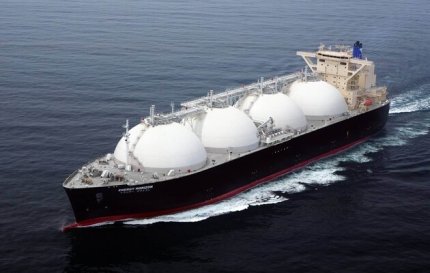The European Commission is likely to postpone the planned publication of a roadmap for the final abandonment of energy resources from Russia.
Points of attention
- European Commission considers postponing the planned publication of a roadmap for abandoning Russian gas by a month in efforts to discuss further 'delicate planning'.
- The EU aims to be free from Russian supplies by 2027 as part of measures to stop funding President Putin's invasion of Ukraine.
- EU countries depend on Russian liquefied gas, with a group of 10 countries advocating for stricter measures, but facing challenges in ensuring unanimity among all 27 bloc members.
- The commission is negotiating with Ukraine on gas transit, with Hungary seeking to restore gas supplies via Ukraine to ensure energy security amid concerns about the impact of sanctions on its economy.
- Efforts to abandon Russian energy resources are crucial in reshaping Europe's energy landscape and reducing dependency on Russia while addressing geopolitical challenges.
What is known about the possible postponement of the EU decision to abandon Russian gas?
As the publication's journalists note, the European Commission may present the plan on March 26. This is a month later than planned.
It is emphasized that this decision was made due to the need to discuss further “delicate planning”.
The roadmap is expected to outline the steps needed for European Union member states to completely abandon Russian fuel, part of efforts to stop funding President Vladimir Putin's invasion of Ukraine, the publication emphasizes.
The authors of the material remind that EU countries still remain dependent on supplies of liquefied gas from Russia.

In particular, in 2024, the EU imported record volumes of supercooled fuel from the Russian Federation, with France, Spain, and Belgium being the largest importers.
A group of 10 EU countries has pushed for tougher measures against Russia by imposing restrictions on natural gas and liquefied natural gas, but those efforts are hampered by the need to ensure unanimity among all 27 members of the bloc. The commission has set a non-binding goal of being free of Russian supplies by 2027, the report said.
What is known about the EU's negotiations with Ukraine on gas transit?
The European Commission intends to continue negotiations with Ukraine on the transit of Russian gas at the request of Hungary and Slovakia.
The corresponding statement was made on the morning of January 27, on the eve of a meeting of the heads of foreign ministries of European countries regarding the extension of sanctions against Russia.
Hungary is seeking a postponement of the decision on the extension of sanctions, which must be made no later than January 31.
Hungarian Prime Minister Viktor Orban said last week that sanctions were harming Hungary's economy and that gas supplies via Ukraine should be restored to ensure the bloc's energy security.




